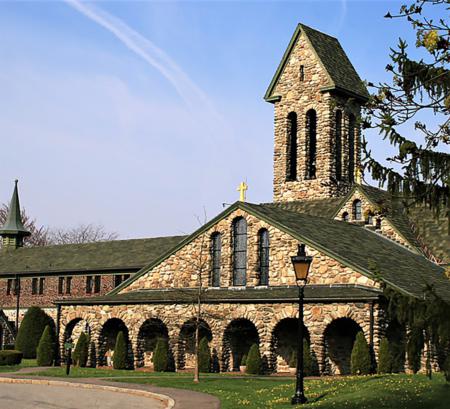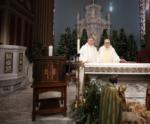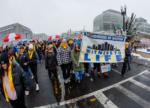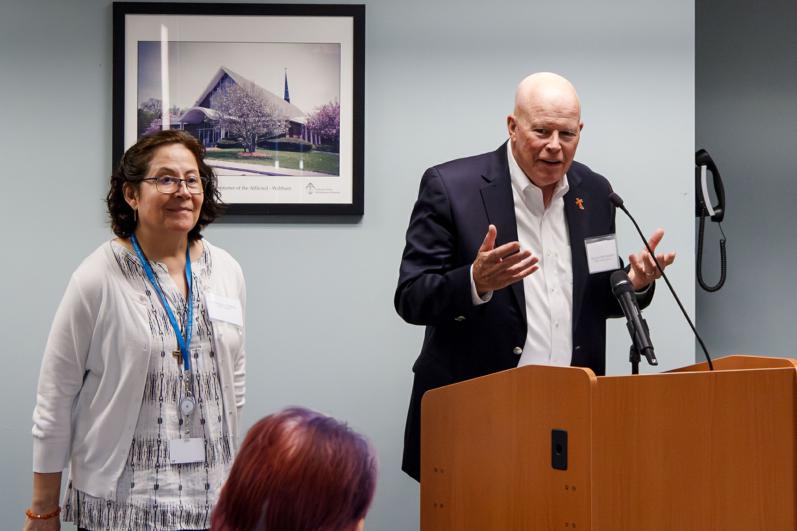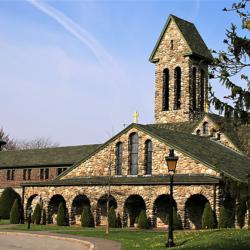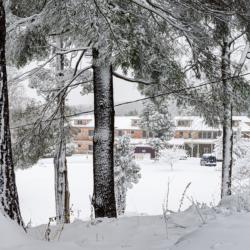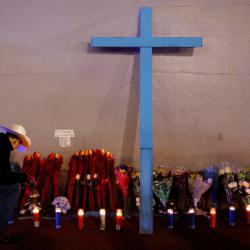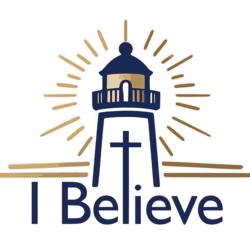Local CCHD grantees share stories of how support will change lives
BRAINTREE -- Alma Chisholm didn't know her house was being auctioned off until a buyer came to her door.
"Somebody rang my doorbell and said, 'Hey, if I'm gonna buy this place I wanna know if you still wanna live here,'" Chisholm recalled.
Chisholm, a single mother of five and Dorchester native, was one of many neighborhood residents whose homes were foreclosed upon in 2012.
"I was really angry to say the least," she said. "I was hurt, and I was nervous."
She and her family had already been in and out of homes due to fires, flooding, and bad landlords.
"I had enough," she said.
After local nonprofits reached out to help her, she wanted to give back. Now, she is president of the Boston Neighborhood Community Land Trust (BNCLT) board of directors. The BNCLT protects residents, primarily those in minority neighborhoods, from losing their homes.
The BNCLT received a $70,000 grant from the Catholic Campaign for Human Development (CCHD), the domestic anti-poverty program of Catholic Relief Services, a project of the United States Conference of Catholic Bishops. During a dinner reception at the Pastoral Center on Aug. 23, Chisholm and other grant recipients shared their stories and expressed their gratitude.
"Thank you, CCHD, for giving us the grant," Chisholm said. "For believing in us. For helping us help more people. We couldn't do it without you."
The organizations that received grant money are primarily focused on helping working people, low-income communities, and immigrants.
The InterValley Project, which received $50,000, is a network of labor unions, religious organizations, and other community groups throughout New England. Their current priorities include helping immigrants get driver's licenses, ensuring that workers get fair wages, and providing addiction treatment to people in the criminal justice system.
Deacon Tim Donohue, the director of the CCHD for the Archdiocese of Boston, said that he wants people in poverty to "be able to advocate for themselves."
Therefore, he encourages them to share their stories at CCHD events like the one on Aug. 23.
"My experience with exploitation taught me how powerful it is when workers come together," Julio Ruiz, executive director of the Lynn Workers Center, told gala attendees.
The center, which educates immigrant workers in Lynn and New Bedford about their rights to fair wages and sick leave regardless of legal status, received $45,000.
Dayanara Contreras is one such worker. She came to Massachusetts from El Salvador with her husband and son.
"They didn't come here because they wanted to," said Sister Barbara Gutierrez, SNDdeN, who translated for Contreras. "They were persecuted. They came with nothing."
Within weeks of her arrival, Contreras began working for Shine Together, a Lynn-based co-op for immigrant women who work cleaning houses.
"They came to this country with many dreams," Gutierrez said, translating for Shine Together Co-Founder Blanca Martinez, "and they are very grateful to CCHD for giving them the opportunity to start realizing their dreams."
With the $75,000 they received from CCHD, members of Shine Together purchased a car, which they used to go around town posting advertisements for their services.
The Lowell-based Coalition for a Better Acre has rescued neighborhood homes from being bought up and destroyed since 1982. The coalition, which received $30,000, owns 529 units of affordable housing in Lowell, Haverhill, and Dracut. The coalition also provides English lessons, food, and emergency assistance to immigrant communities.
"It empowered me to work with the community, especially with the Latino community," said member Amada Gregory, who is running for Lowell City Council. "It empowered me so I could empower other people."
Earthshapers Cooperative, a Dorchester nonprofit which aims to beautify urban spaces with environmentally-friendly landscaping projects, received $50,000.
"For the rest of our lives, we are going to hear about climate change," said Secretary Juan Tabares. "There are lots of things we need to get done in order to save the planet."
To Earthshapers, "saving the planet" means planting flowers that will attract pollinators, such as bees and butterflies, and educating the public about sustainable landscaping practices.
The Greater Boston Interfaith Organization (GBIO) received $75,000, which members used to campaign for improvements to public housing in Massachusetts. Thanks in part to their efforts, this year's state budget gave an additional $15 million to improving public housing throughout the state. However, a study found that $8 billion is needed to bring state housing up to code.
"We need a dollar, the state gives a dime," said GBIO member Arlene Harris, who lives in public housing in Brookline. "I woke up two years ago to the ceiling falling on my face."
The dinner concluded with an address from Vicar General Bishop Mark O'Connell.
"You're not all Catholic, but this is church," he said. "We are all living through Jesus Christ."
